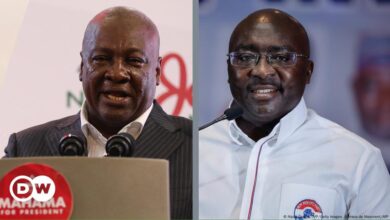Washington State football: Future success depends on outcome of the search (but not that search)

The Holiday Bowl went final at 8:46 p.m. on Friday night, as did Washington State’s collapse.
Not long ago, the Cougars were on the outskirts of the College Football Playoff race. But in the span of 42 days, they lost three consecutive games, their tailback, offensive coordinator, quarterback, head coach and bowl game.
They offered an inspired performance against Syracuse at Snapdragon Stadium but, with a battered roster, had too little of everything to keep pace with the Orange in the 52-35 defeat.
Now full attention turns to the search that will frame WSU’s future. That’s critical, especially in the short term. The Cougars need stability atop the program so they can piece together a roster for next season.
Far more important is filling the vacancy atop the university: The search for the next president.
Kirk Schulz, in charge of WSU since 2016, is stepping down this summer.
Will his replacement know if a football is inflated or stuffed?
Will he (or she) recognize that a successful football team is the most cost-effective marketing tool for any university, particularly with the enrollment apocalypse fast approaching for universities across the country?
Will he (or she) work with Washington State’s board of regents, hold firm against the faculty and work with athletic director Anne McCoy to provide the funding necessary for the Cougars to thrive in the rebuilt Pac-12?
The leadership structure in Pullman is a bit unusual and requires context.
The campus has a chancellor, Dave Cillay, but he reports to Schulz, who oversees the entire WSU system. That reporting line is expected to remain in place when Schulz’s yet-to-be-named successor comes aboard in the second half of 2025.
“Cillay will not have full control of Pullman campus spending, including athletics,” a source familiar with WSU’s process told the Hotline (via text message). “The new system president that replaces Kirk will still have ultimate authority.”
The situation is similar, at least in designation, to the University of California’s leadership structure. Except the UC system president, Michael Drake, does not control campus-specific spending. Cal’s chancellor determines the Bears’ athletic budget. UCLA’s chancellor does the same for the Bruins.
But WSU’s system president, along with the regents, controls the budget in Pullman and the campuses in Spokane, Tri-Cities, Everett and Vancouver, which operate more like satellites than equals. There are roughly three times as many undergraduate students in Pullman than at the four branches combined.
The source called it a “bad setup” because “the Pullman chancellor is the most important person; the other system schools are glorified junior colleges.” Yet the Pullman chancellor doesn’t control the Pullman budget and resource allocation.
Schulz began transitioning into his oversight role for the system in 2021 and elevated provost Elizabeth Chilton to the role of chancellor for the Pullman campus. But Chilton “wasn’t prepared for the scope of Power Five athletics,” the source said, forcing Schulz to retain high-level involvement.
(Chilton left Washington State last spring to become president of the University of New Hampshire.)
“So much of the dysfunction at WSU goes back to all this system junk,” the source said, “instead of focusing all time and efforts on the main campus.”
Making matters worse for the Cougars: Undergraduate enrollment in Pullman has plunged from 18,346 in the fall of 2019 to just 14,346 in the fall of 2024 — a decline of 22 percent, according to WSU data.
More ominous: Enrollment for out-of-state and international students, who pay full-cost tuition, has plunged 37 percent over that span.
Add the massive loss of athletic department revenue resulting from the demise of the Pac-12 and the new era of revenue sharing with athletes (in the summer of 2025), and the Cougars are facing a mammoth budget crunch rooted in existential issues, not the day-to-day costs required to operate a major college football program.
Will the next WSU president grant Cillay, the Pullman chancellor, control of the athletic department’s budget? Given the outsized role the campus plays in the economic model underpinning the entire system, that seems unlikely.
Hence the significance of the search for Schulz’s replacement.
It’s not an issue for the Cougars next season: The budget for 2025-26 will be finalized well before the next president takes charge.
But Schulz’s successor will have authority over athletic department spending in the 2026-27 academic year — the first football season of the rebuilt Pac-12.
One area (of several) to watch: Will the salary pool for coordinators and assistant coaches remain steady?
The Cougars spent $3.7 million on staff salaries in 2024, according to USA Today’s compensation database.
That’s slightly less than Oregon State ($4.3 million) but considerably more than the top tier of the Mountain West, where Boise State and UNLV spent $2.9 million and $2.8 million, respectively.
Or will the Cougars decrease staff salaries to a level comparable to the middle tier of the Mountain West?
Another vital area: The pool of cash assigned to revenue sharing.
Most football programs in the Power Four will share roughly $15 million with athletes. The Group of Five schools won’t come close to that amount, but where will the Cougars fall relative to Oregon State, Boise State and San Diego State?
The future of WSU football is not about one-time allocations. It’s not about a $500,000 expenditure here or a $1 million outlay there.
Success in the rebuilt Pac-12 depends on the commitment of millions of new dollars over the remainder of the decade.
It’s about more — much, much more — than picking the right replacement for Jake Dickert.
*** Send suggestions, comments and tips (confidentiality guaranteed) to wilnerhotline@bayareanewsgroup.com or call 408-920-5716
*** Follow me on the social media platform X: @WilnerHotline
Originally Published:




